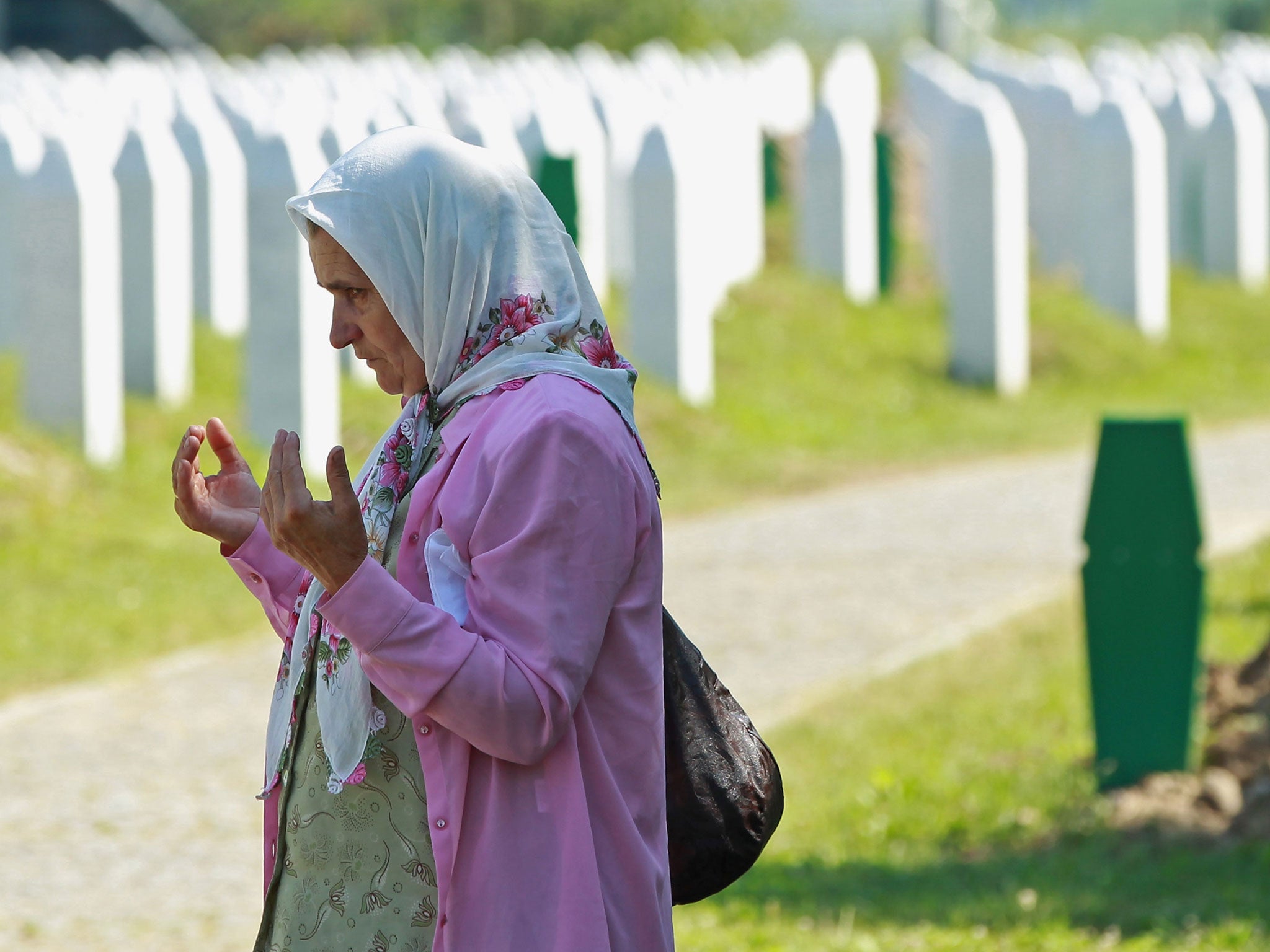Srebrenica Memorial Day: Our continuing horror
This week in 1995 over 8,000 men were systematically executed and 20-50,000 women raped as part of an organised ethnic cleansing. Here a survivor tells her story

Your support helps us to tell the story
From reproductive rights to climate change to Big Tech, The Independent is on the ground when the story is developing. Whether it's investigating the financials of Elon Musk's pro-Trump PAC or producing our latest documentary, 'The A Word', which shines a light on the American women fighting for reproductive rights, we know how important it is to parse out the facts from the messaging.
At such a critical moment in US history, we need reporters on the ground. Your donation allows us to keep sending journalists to speak to both sides of the story.
The Independent is trusted by Americans across the entire political spectrum. And unlike many other quality news outlets, we choose not to lock Americans out of our reporting and analysis with paywalls. We believe quality journalism should be available to everyone, paid for by those who can afford it.
Your support makes all the difference.On this day, in 1995, my world changed forever. Five days earlier, on 6 July I had buried my youngest son, Edin. He was killed by a Bosnian Serb grenade, as their forces advanced on the UN Safe Area of Srebrenica. When I buried Edin on that hot summer’s day, I imagined things could not get any worse. But less than a week later, I lost the rest of my family; my husband, Ramo, and son, Nermin, were captured and killed as they fled to the free territory of Tuzla. I, along with thousands of other women, waited at a refugee camp for my husband and son to arrive. They never did.
It defies belief that only 50 years after the Holocaust, genocide was once again rife in Europe. Srebrenica was lost to the world then, as the Bosnian Serbs committed the worst crime on European soil since the Second World War. Over 8,000 men were systematically executed. Between 20-50,000 women were raped as part of an organised ethnic cleansing regime. Six hundred children were slaughtered during the Siege of Sarajevo alone. What appear as mere statistics of casualties from conflict are in fact representative of a grave humanitarian injustice, which claimed the loving sons of grieving mothers, the husbands of widowed women, and the fathers of orphaned children.
After my village was attacked and burnt down by Bosnian Serb forces in May of 1993, we fled to the UN safe haven, certain the world would protect us. The conditions were abysmal. We lived in a house with 60 people, without electricity or running water, and only one toilet.
On the night of 11 July, I heard the screams and cries of people who were being tortured and killed. All the refugees were paralysed with fear. The next morning, trucks arrived to take us to free territory. Later, I watched in horror at what had become of our men and boys. Video footage taken by Bosnian Serb forces emerged of my husband being captured with several others. He was calling up to Nermin, who was hiding in the mountains, to surrender. I cannot describe the excruciating pain I experienced watching that.
Ramo and Nermin were eventually found in mass graves, and I buried them in 2008 at the Potocari Memorial Centre. I finally returned to my village in 2009, and now live on my own in the house that we all once lived in happily together. There is certainly life after such suffering, but there’s never any joy.
July 11th is always a particularly difficult day for me. It reminds me that the world was watching then, but it failed us. This Srebrenica Memorial Day, I pray it doesn’t fail us again.
As told to Ayman Khwaja.
Today is Srebrenica Memorial Day. To find out more, visit www.srebrenica.org.uk
Join our commenting forum
Join thought-provoking conversations, follow other Independent readers and see their replies
Comments